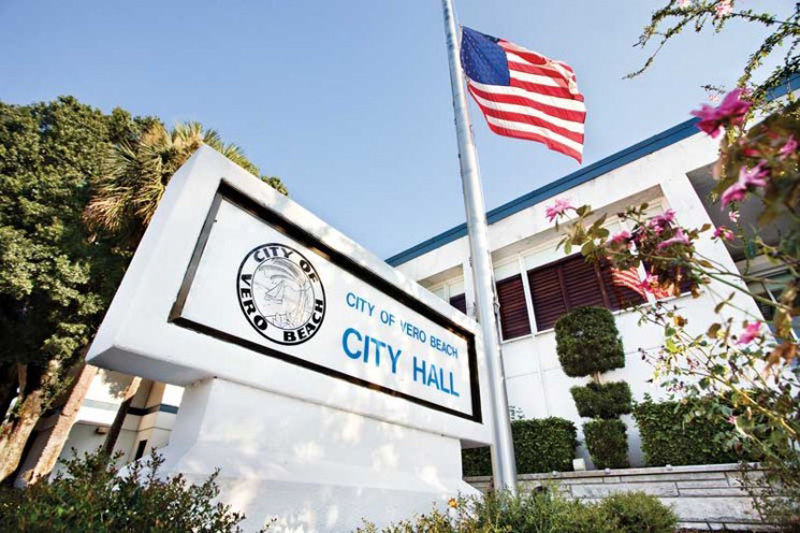VERO BEACH — After reaching a 2-2 stalemate with Councilwoman Amelia Graves not present to break the tie, the Vero Beach City Council recessed its final budget hearing Tuesday evening, to reconvene at 5:15 p.m. Sept. 22.
By Florida law, the budget and property tax rate must be approved by a majority of the City Council, in the case of four members present, by at least three of them.
Initially, the council had approved a budget that called for a nearly 40 percent increase in property taxes. Then earlier this month, they trimmed that down a bit, resulting in a proposed 25 percent increase in property taxes from the roll-back rate that would bring in the same revenues as the current year.
The tax rate that is on the table for a vote is $2.38 per $1,000 in taxable value, which would be about a $100 per year increase for a homeowner with $300,000 in taxable value. Vero makes up roughly 10 percent of the entire tax bill, the bulk of which goes to School Board, Indian River County and other special taxing districts.
The debate Tuesday night was whether or not to take more than $600,000 out of the city’s reserves or “fund balance” to shave more off the property tax rate, or to go back through the budget and make cuts to projects, positions or other expenses.
Councilman Randy Old, who has spent his career in the banking industry, said he was against what he called “deficit spending” in principle because Vero has no policy of if and when it’s okay to dip into reserves, and what it’s okay to spend reserve money on in the normal budget process.
The city has about $9 million in unrestricted reserves to cover emergencies and to front payroll and other expenses for the first month or so of the fiscal year before taxpayers write their annual property tax payment checks.
Vice Mayor Jay Kramer and Councilwoman Pilar Turner voted against the budget and proposed tax rate at the first budget hearing, but Kramer on Tuesday night said he would support taking money out of the reserves.
Kramer said he looked up the definition of “deficit spending” and said it involves spending borrowed money. “The money we’re spending doesn’t belong to somebody else. It’s ours.”
Mayor Dick Winger expressed frustration at feeling like the city does not have the tools to deal with the current dilemma. Unable to break the 2-2 tie, he proposed postponing the final budget decision for one week.
The city has no clear guidelines as to how much money should be kept in reserves, but the amount currently held is about 42 percent of the proposed annual $22 million budget. About $2 million of that is considered set aside for hurricane expenses, as governments have to front costs that are sometimes covered by insurance or by the Federal Emergency Management Agency in the event of a storm.
“I wish we had a reserve policy, lacking a reserve policy, I think we’re deficit spending,” Winger said, adding that a business can do that to float through a bad year or two, but that he doesn’t think government should, in the interest of transparency.
Finance Director Cindy Lawson said she would have a draft of a policy on the spending of fund balance to the city’s Finance Commission in October or November for consideration.
City Manager Jim O’Connor said he thinks reserves should be used to fund a one-time project like putting a new roof on a building or renovating City Hall (only an example, City Hall renovations are not in the budget).

